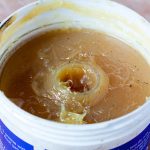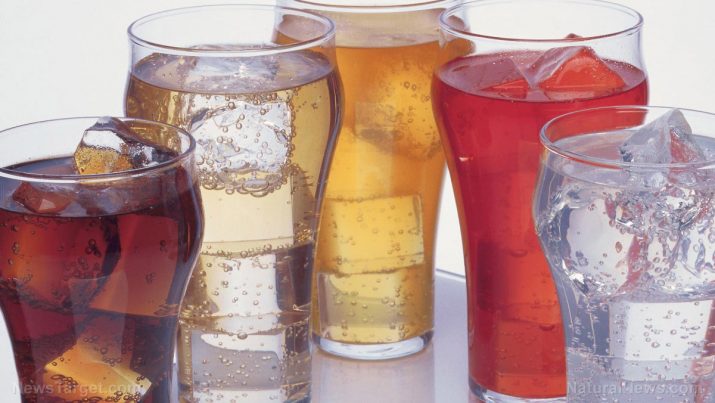
Thirty new studies confirm it: Sweet drinks cause weight gain, obesity in children and adults – experts call for action to reduce consumption
Friday, January 05, 2018 by Zoey Sky
http://www.realsciencenews.com/2018-01-05-thirty-new-studies-confirm-it-sweet-drinks-cause-weight-gain-obesity-in-children-and-adults.html

According to the results of a systematic review, sugar-sweetened beverages (SSB) are associated with obesity in children and adults.
Researchers have studied the latest data concerning SSBs, and at least 30 studies from 2013 to 2015 point to the link between SSBs and obesity. Experts warn countries who have yet to do so that they must immediately take the necessary steps to minimize the consumption of these drinks since they are full of “empty calories.”
The review was published in the journal Obesity Facts. Dr. Nathalie Farpour-Lambert, from University Hospitals of Geneva, Switzerland and one of the lead authors of the review, says that the proof connecting SSBs to obesity and overweight has dramatically increased in only three years. The data cements this link, and together with the “already published evidence,” one thing is clear: public health policies must try to minimize the consumption of SSBs and push for healthier options such as water. However, this isn’t the case in other countries. (Related: Researchers conclude that drinking soda during pregnancy causes obesity in offspring.)
Out of the 30 studies, 20 focused on children while the rest concerned adult participants. The link between SSBs and obesity was apparent in 93 percent of the studies. Overall, the studies involved 244,651 participants. Thirty-three percent of the studies took place in Europe, 23 percent in the U.S., 17 percent in Middle or South America, 10 percent in Australia, seven percent in South Africa, and the remaining 10 percent was in Iran, Thailand, and Japan.
The authors of the review admit that it is difficult to accurately pinpoint the “direct cause-and-effect relationship between SSB consumption and overweight and obesity.” However, Dr. Farpour-Lambert said, “Associations between SSBs and body weight measures might be affected by other diet and lifestyle factors, but the majority of the prospective cohort studies adjusted for these possible confounding factors including several nutrition and lifestyle factors, and for all, except for one study, a positive association between SSB consumption and overweight/obesity was found. This suggests an independent effect of SSBs.”
According to a report from Euromonitor International, at least 19 countries introduced taxes on food and drinks to battle the obesity caused by SSBs. Others promised to do the same soon so sugar consumption can be minimized by at least 20 percent, per guidelines from the World Health Organization (WHO).
Dr. Farpour-Lambert adds that upcoming studies should try to answer these questions, “How can we effectively reduce the consumption of SSBs in different populations? What is the impact of interventions on body weight or obesity in children and adults? What are the responsibilities of the food and beverages industry, policy makers, public health institutions, communities, schools, and individuals? Is a sugar tax feasible and effective for solid food, and what impact will it have?”
She concluded that the “balance between the responsibility of individuals, health advocates, and governments and society” should be determined. It is also imperative that multiple stakeholders mobilize and spearhead operational synergies for various sectors. Professional networks and the food and beverages industry must also be pushed to endorse healthy diets that are in line with international standards.
Healthy alternatives to SBBs
If you want to drink some soda, try some of these healthier alternatives to SBBs instead:
- Infused water — Take a pitcher of water and infuse it with some sliced fruits or veggies. You can also put chopped up fruit in an ice cube tray for some flavored ice cubes that will go well with your infused water.
- Hot or iced natural green tea — A great calorie-free drink full of antioxidants, green tea also helps reduce the risk of several types of cancer, heart disease, obesity, kidney stones, and maybe even cavities.
- Vegetable juice — While vegetable juice contains less sugar, choose the low-sodium versions when possible. Use a juicer on your favorite veggies and add fruits for some sweetness.
You can read more articles about drink alternatives and tips on how to eat healthy at Fresh.news.
Sources include:
Tagged Under: Tags: badfood, badhealth, badmedicine, corn syrup, empty calories, goodscience, HFCS, junk food, liquid sweeteners, obesity, obesity crisis, overweight, processed food, soda pop, SSB, SSB consumption, sugar-sweetened beverages





